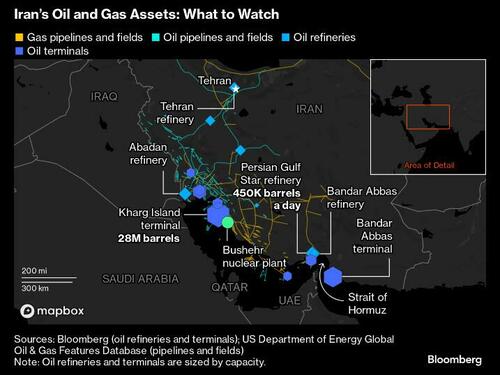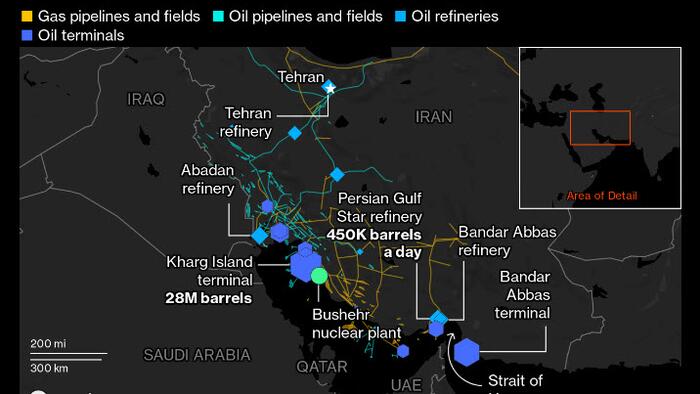Iran’s Oil Tankers Flee Biggest Export Terminal Fearing Israeli Attack
By Charles Kennedy of OilPrice.com
Iranian oil tankers have moved away from Kharg Island, Iran’s biggest oil export terminal, amid fears of an imminent Israeli attack on the most important crude export infrastructure in Iran.

Satellite images and tanker tracking companies have detected the major exodus of Iranian tankers away from Kharg Island, which handles about 90% of Iran’s all oil exports, CNBC reports.
“The National Iranian Tanker Company (NITC) appears to be fearing an imminent attack by Israel,” TankerTrackers.com posted on social media platform X late on Thursday.
“Their empty VLCC supertankers vacated the country’s largest oil terminal, Kharg Island, yesterday,” TankerTrackers.com said.
The vessel-tracking service noted that “crude oil loadings continue, but all of the extra vacant shipping capacity has been removed from the anchorage of Kharg Island.”
“This is the first time we see anything like this since the 2018 sanctions round,” TankerTrackers.com said.
Satellite imagery captured two weeks ago by the European Space Agency’s Copernicus Sentinel-1 mission showed a number of very large crude carriers in the waters around Kharg Island, CNBC says.
But satellite images of the same area from October 3 showed that no tankers can be seen around Iran’s most important oil export terminal, according to CNBC.
The removal of vacant shipping capacity from Kharg Island suggests that Iran could be bracing for an Israeli attack on its oil infrastructure.
The oil market is also awaiting the Israeli response to the Iranian missile attack on Israel earlier this week. Oil prices were up by 1.5% early on Friday and on track for a strong weekly gain amid reignited tensions in the Middle East.
Most analysts say that the OPEC spare capacity, concentrated in Saudi Arabia and the UAE, would be enough to compensate for an Iranian loss of supply.
An even more significant disruption to supply from the Middle East could lead to triple-digit oil prices. But analysts currently believe attacks on oil infrastructure in other producers in the region or the closure of the Strait of Hormuz are low-probability events.
